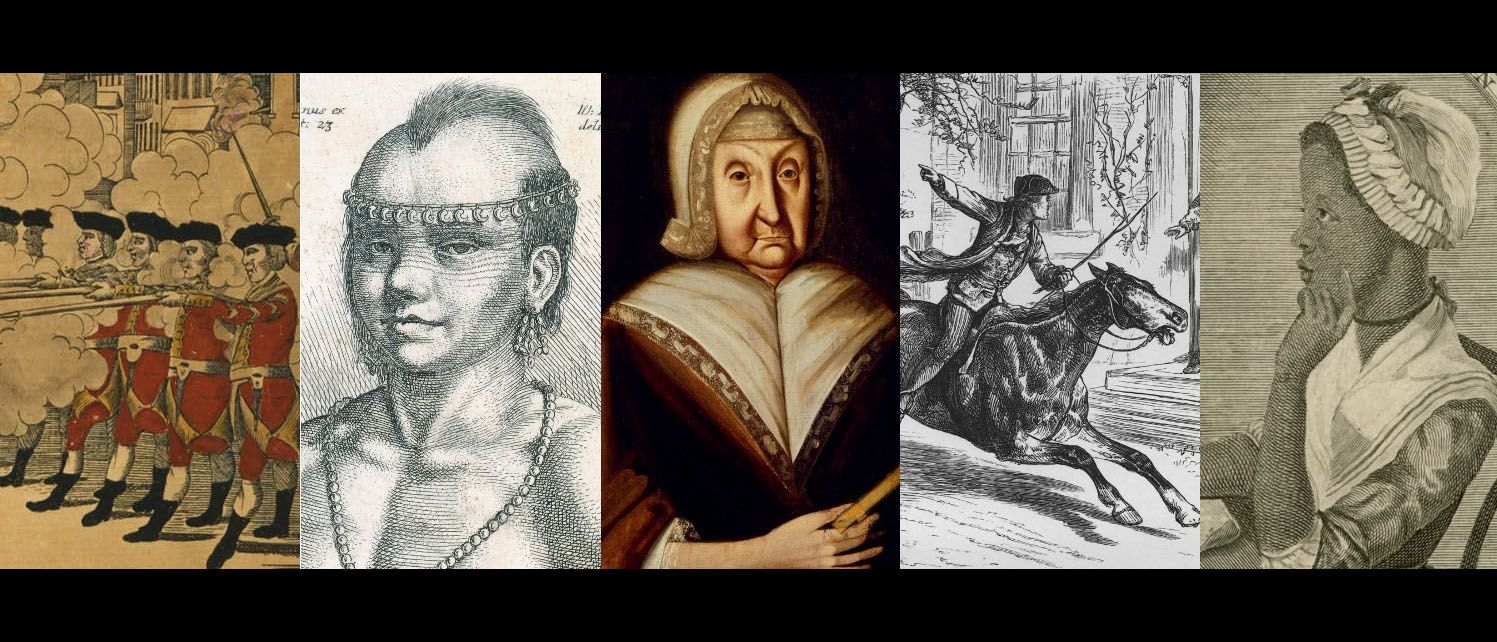Social Reform and Identity Formation in the 17th Century - A Panel Discussion

MHS Event
Authors: Arthur George Kamya, Boston University
Alice King, University of Virginia
Comment: Adrian C. Weimer, Providence College
This is a hybrid event. The in-person reception will begin at 4:30 PM.
This panel investigates forms of social control in 17th century New England. Arthur George Kamya’s paper examines the regulation of distilled liquor in 17th century Massachusetts Bay Colony, exploring how authorities navigated competing moral, economic, and security imperatives. Initially targeting a cross-section of colonists, liquor laws evolved to focus on servants, Native Americans, and eventually African Americans. The colony's approach shifted from moral censure to pragmatic revenue generation, with officials using fines and licenses to fund government operations. Kamya’s study illuminates how alcohol regulation became a tool of social control, state-building, and the construction of racial hierarchies in colonial New England, offering insights into the complex interplay between commerce, governance, and identity formation in early America. As discussed in Alice King’s work, Connecticut adopted a notable strategy towards certain Indigenous populations during the initial decades of settlement, attempting to control and exploit Native communities by turning them into colonial tributaries who would provide essential supplies, wampum, and military aid. King’s paper considers the evolution of tributary politics at the end of the seventeenth century after the Dominion of New England and Glorious Revolution had destabilized colonial authority and left colonists vulnerable to attack by French and Native forces, including the Wabanaki Confederacy during King William’s War, 1689-1697, when Connecticut leaders sought to raise soldiers for New England’s defense from these historic tributary communities.
Join the conversation at the Pauline Maier Early American History Seminar. Seminars bring together a diverse group of scholars and interested members of the public to workshop a pre-circulated paper. Learn more.
Purchasing the $25 seminar subscription gives you advance access to the seminar papers of all seven seminar series for the current academic year. Subscribe at www.masshist.org/research/seminars. Subscribers for the current year may login to view currently available essays.
Hybrid Event
The in-person reception starts at 4:30 PM and the seminar will begin at 5:00 PM.
Masks are optional for this event.
The virtual seminar begins at 5:00 PM and will be hosted on the video conference platform, Zoom. Registrants will receive a confirmation message with attendance information.
By registering you are agreeing to abide by the MHS Visitor Code of Conduct.
